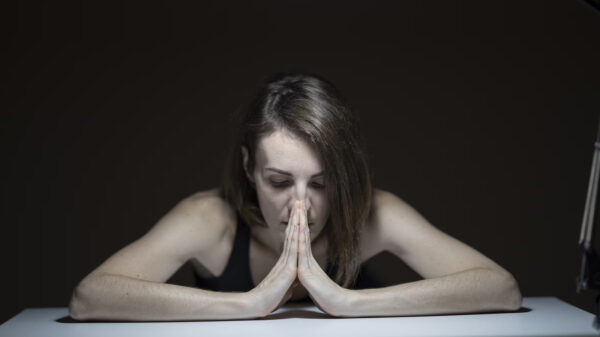
I must confess my skepticism also colors the way I see claims of religious experience. Many believers offer the personal testimony of experience. When they do this, they present themselves as eyewitnesses, and I’ve learned to be skeptical of their testimony. I have six brothers and sisters who were raised in Mormonism. Like other Latter Day Saints, when asked why they believe Mormonism is true, they offer personal testimony of religious experiences that served as confirmation of the Book of Mormon and the claims of Joseph Smith. This religious experience (whether it is described as a “burning in the bosom” or in more contemporary language) is seen as sufficient evidence Mormonism is true. But when Joseph Smith and the Book of Mormon are evaluated under the simple template I use to assess eyewitness reliability, they fail to withstand the scrutiny. In fact, Mormonism is demonstrably false.
Given my experience with Mormon believers, I’ve become skeptical of Christians who cite religious experience as the only evidence they can offer when defending the claims of Christianity. I’m not saying I don’t trust religious experience at all; I simply saying all religious experience must be tested:
1 Thessalonians 5:19-21
Do not quench the Spirit; do not despise prophetic utterances. But examine everything carefully; hold fast to that which is good…
1 John 4:1
Beloved, do not believe every spirit, but test the spirits to see whether they are from God; because many false prophets have gone out into the world.
When I travel around the country and ask Christians why they believe what they believe, most end up citing some form of religious experience. While this is certainly an important piece of evidence, it is not sufficient unless it has been tested. When talking to my Mormon friends and family members, I never deny they’ve had an experience of some sort, I simply don’t believe their experience has been from God (or can adequately prove the trustworthy nature of Joseph Smith or the Book of Mormon). Every eyewitness testifies to an experience of some sort, and every eyewitness must be tested prior to being trusted.
We’re often willing to test others who make claims about religious experiences, but hesitant to test ourselves. Have you experienced something you’ve attributed to God? How do you know God was truly responsible for your experience? Is this experience sufficient evidence of God’s existence? There is an important order of evaluation each and every one of us must employ if we are to be certain our experiences are legitimate and properly attributed. If you are relying on your religious experience to prove God’s existence, don’t trust it in isolation. Take the time to evaluate the claims of the religious system you are citing. Can its Scripture pass the four part test I’ve described? If it can’t, your experience has nothing to do with the God described in those texts. If God exists, He’s not going to lead you to a lie through an experience. Evaluate their Scripture before you interpret your experience. It’s tempting to trust our personal experience over every other kind of corroborative evidence. But if we fail to test ourselves as eyewitnesses (and critically evaluate our experiences), we can be deceived into believing a lie. Click To Tweet
It’s tempting to trust our personal experience over every other kind of corroborative evidence. But if we fail to test ourselves as eyewitnesses (and critically evaluate our experiences), we can be deceived into believing a lie. As Christians, we need to recognize the danger here and develop an evidential faith capable of withstanding the growing skepticism of our culture. Let’s be ready to provide an answer incorporating both our religious experiences and the evidential basis for believing these experiences are from God. Let’s demonstrate the importance of testing eyewitnesses by beginning with ourselves. It’s important to test an eyewitnesses, even when the eyewitness is you.

J. Warner Wallace is a Dateline featured Cold-Case Detective, Senior Fellow at the Colson Center for Christian Worldview, Adj. Professor of Christian Apologetics at Talbot School of Theology, Biola University, author of Cold-Case Christianity, God’s Crime Scene, and Forensic Faith, and creator of the Case Makers Academy for kids.
Subscribe to J. Warner’s Daily Email
J. Warner Wallace is a Dateline featured cold-case homicide detective, popular national speaker and best-selling author. He continues to consult on cold-case investigations while serving as a Senior Fellow at the Colson Center for Christian Worldview. He is also an Adj. Professor of Christian Apologetics at Talbot School of Theology, Biola University, and a faculty member at Summit Ministries. He holds a BA in Design (from CSULB), an MA in Architecture (from UCLA), and an MA in Theological Studies (from Gateway Seminary).

































Pingback: Teste suas testemunhas oculares, mesmo quando você é a testemunha ocular – Cosmovisão e Fé
Pingback: Weekly Apologetics Bonus Links (06/13 – 06/20) | Apologetics315